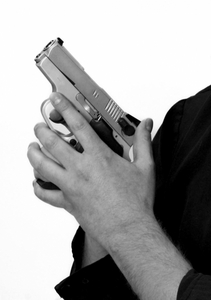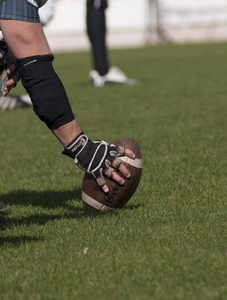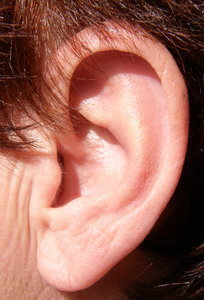Being arrested for domestic violence in Broward County can turn your world upside down in an instant. But here’s something many people don’t realize: an arrest doesn’t automatically mean you’ll face criminal charges. Understanding how the charging process works—and when charges can be dropped—is important when your freedom and future is at stake. 
The Reality Behind Domestic Violence Arrests vs. Charges
In Florida, domestic violence isn’t a standalone crime but rather an enhancement that applies to various offenses when they occur between family or household members. Under Florida Statute § 741.28, domestic violence can include actions such as assault, battery, sexual assault, stalking, kidnapping, or any criminal offense resulting in physical injury or death when committed by one family or household member against another.
When law enforcement responds to a domestic violence call in Broward County, they often make arrests based on probable cause—a relatively low standard that merely requires reasonable belief that a crime occurred. However, as a Broward domestic violence lawyer can explain, this arrest is just the beginning of a complex legal process, not the end of your story.
Who Really Decides Whether Charges Get Filed?
Contrary to popular belief, victims don’t “press charges” in domestic violence cases. In Broward County, that decision rests entirely with the State Attorney’s Office for the 17th Judicial Circuit. Prosecutors review the evidence independently and make charging decisions based on what they believe they can prove in court beyond a reasonable doubt.
This prosecutorial discretion means that even when an arrest occurs, the state attorney may decide not to file formal charges for various reasons:
- Insufficient evidence to prove the case beyond a reasonable doubt
- Witness credibility issues
- Constitutional violations during the investigation
- Evidence that contradicts the initial police report
 The Unique Nature of Domestic Violence Prosecutions
The Unique Nature of Domestic Violence Prosecutions
Broward domestic violence cases differ significantly from other criminal matters, particularly regarding victim cooperation. Under Florida Statute § 90.804(2)(a), prosecutors can sometimes proceed without the alleged victim’s testimony by using hearsay exceptions, such as excited utterances made during 911 calls or statements to responding officers.
However, victim non-cooperation still presents substantial challenges for prosecutors. When alleged victims recant their statements, refuse to testify, or become uncooperative, it often weakens the state’s case considerably. Unlike other crimes where multiple independent witnesses might exist, domestic violence typically occurs in private settings with limited evidence beyond conflicting accounts.
How Early Legal Intervention Can Prevent Charges
The window between arrest and formal charging—typically 21 days in Florida under Florida Rule of Criminal Procedure § 3.134—represents a critical opportunity. During this period, an experienced domestic violence defense attorney can:
- Conduct Independent Investigation. Gathering evidence that contradicts the state’s narrative, including witness statements, medical records, photographs, and electronic communications that provide context or alternative explanations.
- Challenge Evidence Collection. Identifying potential Fourth Amendment violations, Miranda rights violations, or other constitutional issues that could render evidence inadmissible.
- Communicate with Prosecutors. Presenting exculpatory evidence and legal arguments directly to the prosecutor’s office before charging decisions are made. This proactive approach often proves more effective than reactive defense strategies.
- Address Victim Concerns. When appropriate and ethical, helping facilitate communication between parties to clarify misunderstandings or address underlying issues that led to the incident.
The Strategic Advantage of Early Representation
Prosecutors make charging decisions based on the evidence available to them at the time. If they only see the police report and initial witness statements, they’re working with an incomplete picture. Early legal intervention allows defense attorneys to present the full story before charges are filed.
Consider this scenario: Police arrest someone after responding to a domestic disturbance call where the alleged victim has visible injuries. The initial report might paint a clear picture of guilt. However, a Fort Lauderdale defense attorney’s investigation might reveal:
- The injuries resulted from an accident during a verbal argument.
- The alleged victim was the initial aggressor.
- Both parties had been drinking, affecting their ability to accurately recall events.
- Text messages or social media posts contradict the alleged victim’s statement.
Presenting this evidence before charges are filed can prevent the case from ever reaching the courtroom.
When Charges Can Be Dropped After Filing
Even after formal charges are filed, dismissal remains possible under certain circumstances:
- Lack of Evidence. If new evidence emerges that undermines the prosecution’s case or if key evidence is ruled inadmissible.
- Victim Non-Cooperation. While prosecutors can proceed without victim cooperation, practical challenges may lead to dismissal when victims refuse to testify and other evidence is insufficient.
- Constitutional Violations, Evidence obtained through illegal searches, improper interrogations, or other rights violations may be excluded, potentially forcing dismissal.
- Prosecutorial Discretion. Prosecutors may dismiss charges in the interest of justice, particularly in cases involving minimal harm, first-time offenders, or where prosecution wouldn’t serve the public interest.
The No-Contact Order Complication
Florida courts typically issue no-contact orders as a condition of bond in domestic violence cases, prohibiting contact between the defendant and alleged victim. These orders can significantly impact families and relationships, making early resolution even more crucial. Under Florida Statute § 741.30, violating these orders constitutes a separate criminal offense, creating additional legal jeopardy.
 Fort Lauderdale Criminal Attorney Blog
Fort Lauderdale Criminal Attorney Blog










